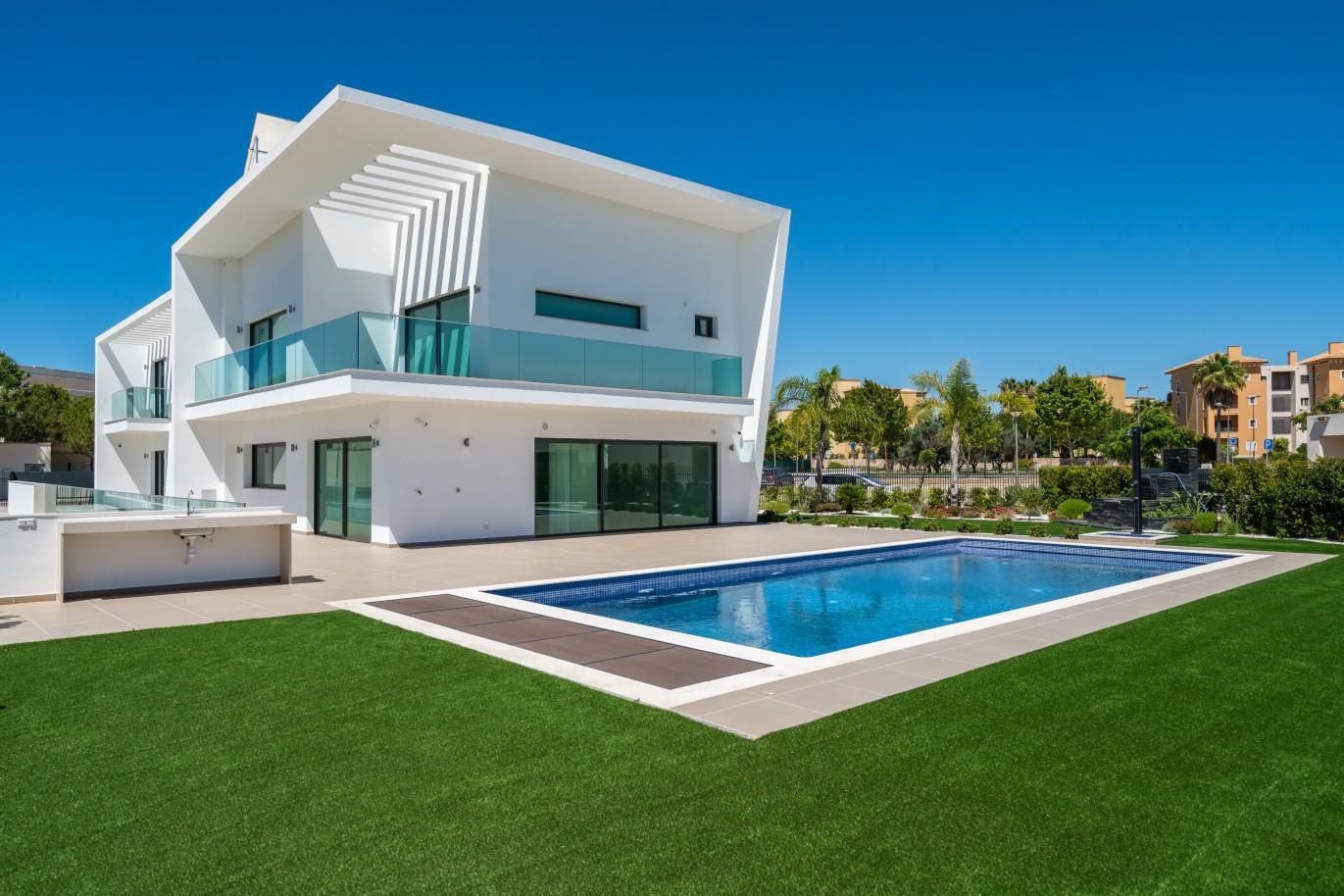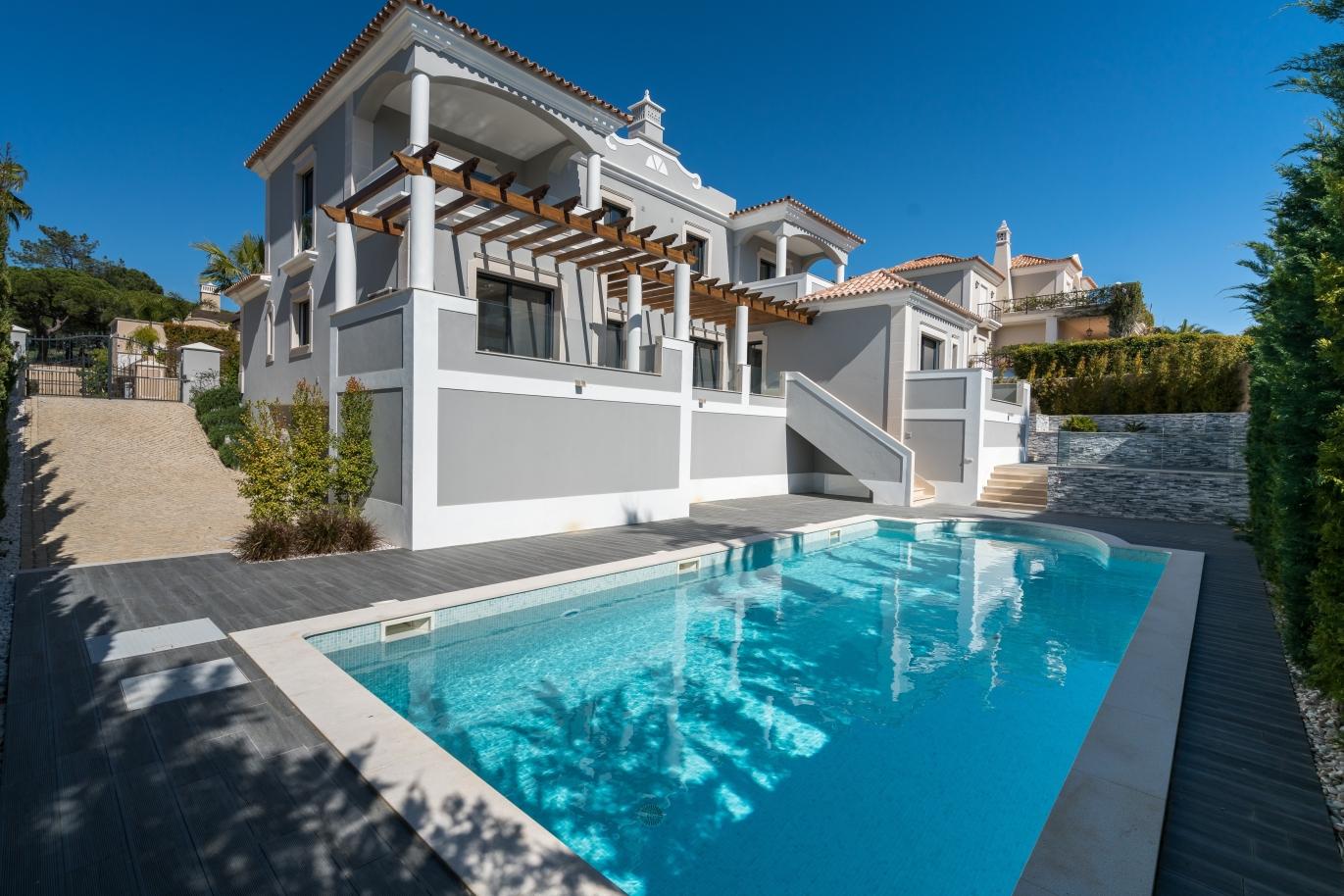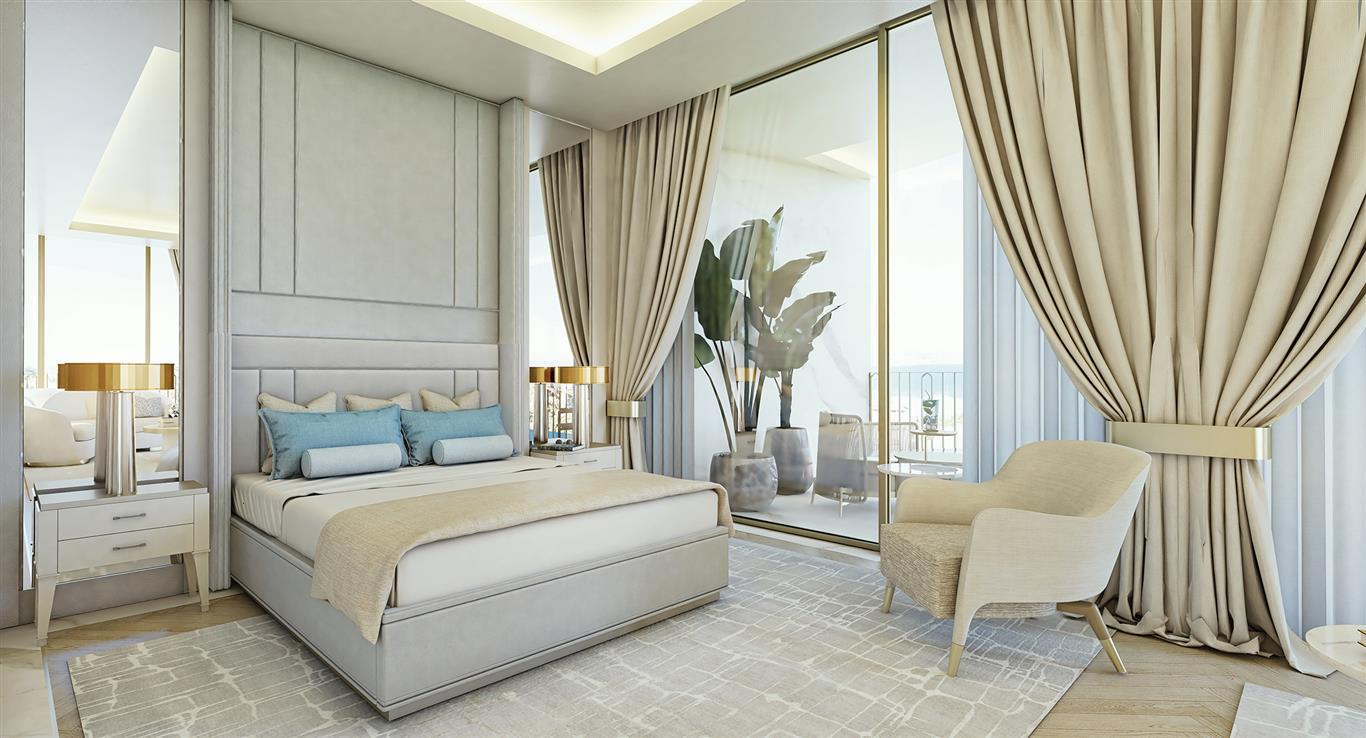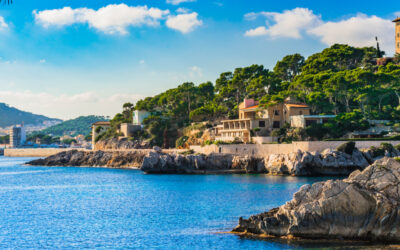Why turning amber shouldn’t dampen Portugal’s appeal
Portugal became especially attractive in May when it made it on to the UK’s Covid green list and reciprocated by eliminating quarantine for UK visitors. Even with the country set to be relegated to the amber list, 2021 is still a good time to plan a relocation or property purchase there…
Overnight last month the Algarve, with its desirable lifestyle and luxury resort homes, became a magnet for British people, who have enjoyed a few weeks of being one of few nations not required to quarantine when they land at Faro nor when they return to the UK. Sadly, this has been short-lived, with the UK Government announcing that from 8 June the country will be down-graded to its amber list, giving it the same status as other popular destinations, such as Spain, France, Italy and Greece.

Vilamoura – Modern villa with 4 suites and contemporary architecture for sale – The Luxury Property Collections
Despite this set-back, the tourist and property industries remain hopeful. Around 2.15 million British tourists visited Portugal in 2019, accounting for roughly nine million overnight stays. Last year was less busy but signs point to visitor numbers picking up significantly in 2021, especially once more countries can travel there. “Most international organizations say that, if vaccination continues to evolve reasonably in Europe, we will probably end the year 2021 with a growth of 20-30 per cent when compared to 2020,” commented Rita Marques, Portugal’s Secretary of State for Tourism.
Permanent moves
Particularly noticeable this year has been interest from UK citizens exploring options to relocate to Portugal. While Brexit has played its part, lockdown and the general shift towards remote working has accelerated the trend. “Every day we are receiving calls and emails from British residents just waiting to get on a plane to Portugal,” observed Christina Hippisley, General Manager at the Portuguese Chamber of Commerce in London.

Quinta do Lago – Luxurious villa with swimming pool in a peaceful development for sale – The Luxury Property Collections
Ms Hippisley continues: “The most common enquiries are about what residency options there are in Portugal for Brits now we are no longer part of Europe, followed by questions about how to move their businesses there and work remotely. Portugal appeals to a relatively wealthy demographic. On top of its existing fan base of older, more established retirees and second homeowners, the country’s growing reputation as a tech investment and manufacturing hub is attracting a new breed of younger, working families keen to live there permanently.”
Golden opportunity!
Since its launch in 2012, Portugal’s well documented Golden Visa has made the country especially attractive to non-EU investors – which now includes UK citizens, more so than most other European countries. Recently, changes to the rules, which kick in next year and will effectively make this residency-by-investment visa harder to obtain, have fuelled a rush to beat the end-of-year deadline.
Golden Visa grants Portuguese residency to applicants who invest in property or other specified investments. The property option is popular as it requires less capital and brings with it a home in Portugal. Other benefits of the Golden Visa holders include: borderless travel around the Schengen Area (most of the EU), a requirement to spend just seven days in Portugal in the first year and not less than 14 days in subsequent years, no need to move to Portugal full-time as a tax resident (ie spend more than 182 days a year there), benefits can be extended to family members.

Cascais – 3-bedroom apartment in an extraordinary location in downtown Cascais – The Luxury Property Collections
Currently, how much applicants need to invest to obtain the visa varies according to the location and age of the property. For a standard resale or key-ready property in a high-density area, such as central Lisbon, the property transaction must be worth at least €500,000, dropping to €400,000 in areas deemed low density. Meanwhile, a property classed as a rehabilitation project requires a minimum investment of €350,000 in a high-density area or just €280,000 in a low-density area.
But the new rules coming in on 1 January 2022 mean that properties within densely populated metropolitan and coastal areas, including Lisbon, Porto and likely much of the Algarve, will no longer be eligible. Instead, investment for a Golden Visa will be directed to Portugal’s less-densely populated interior and the autonomous regions of the Azores and Madeira.
Unsurprisingly, the approaching changes have triggered interest in alternative residency options, noted Casas do Barlavento. “There are two other advantageous options, the D2 and D7 visas,” said the Lagos-based estate agency. “The D2 is aimed at foreign investors who want to invest their money in small to medium scale companies. D7 visas are considerably easier to obtain – you must prove you have a reasonable and constant income and a residence in Portugal, owning or renting.”
Favourable tax
Not forgetting Portugal’s other great attraction for new foreign residents, namely its Non-Habitual Residence (NHR) regime. NHR is a tax scheme that entitles expats to enjoy very low taxation for their first 10 years in the country. Notable benefits include tax exemption on almost all foreign-sourced income; a flat rate of 20 per cent for some Portuguese income, such as from specific professions and self-employment; tax exemption for donations or inheritances from direct relatives and exemption from wealth tax. This means that British expatriates can potentially receive most UK rental income, capital gains on real estate, interest, dividends and non-Portuguese employment income tax-free.
Bring all of the above together and it’s little wonder Portugal, but especially the Algarve, is a favourite with foreigners in search of an idyllic lifestyle.




